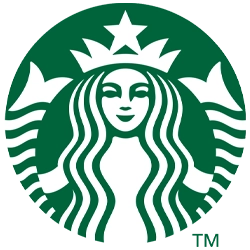
Starbucks, a global coffee company in the beverage industry, prioritizes community, sustainability, and innovation. Being committed to ethical sourcing, they aim to inspire and nurture the human spirit—one person, one cup, and one neighborhood at a time, while fostering an inclusive and diverse culture.
TAGS
Updated 6 months ago
How woke is Starbucks?
Introduction
Starbucks, the global coffee giant, has certainly brewed more than just coffee over the years. With its strong support for LGBTQ+ rights, extensive diversity, equity, and inclusion (DEI) initiatives, and active participation in social justice causes, Starbucks has firmly positioned itself as a champion of the woke agenda.
This review takes a closer look at Starbucks’ practices, examining their financial contributions, DEI policies, mandatory training sessions, free speech policies, support for LGBTQ+ initiatives, marketing strategies, stances on family structures, and criticisms of conservative values.
Financial Contributions to Progressive Causes
Starbucks doesn’t just serve coffee; it serves up political activism too. Former CEO Howard Schultz’s endorsement and financial support for Joe Biden’s campaign highlight the company’s political leanings. Schultz emphasized the importance of preserving democracy and, despite criticizing the Democratic Party’s leftward shift, he supported Biden. Schultz stated that the preservation of democracy is a key factor for his support of Biden. Additionally, Starbucks contributes to organizations promoting social justice, climate change activism, and other progressive causes.
Prioritization of DEI Policies
Starbucks takes pride in its robust DEI policies. The company is committed to creating an inclusive workplace, emphasizing gender and racial pay equity, transparency in workforce diversity data, and setting ambitious representation goals for BIPOC employees by 2025.
One testament to its commitment to DEI is its announcement that in 2018, it achieved “100 percent pay equality each year for partners of all genders and races performing similar work across the U.S.” Tying executive compensation to inclusion and diversity objectives shows that these values are not just corporate fluff but a core part of Starbucks’ leadership ethos.
Mandatory Training Sessions
Starbucks mandates training sessions on unconscious bias and other DEI-related topics. In 2018, Starbucks closed over 8,000 US stores for an afternoon to conduct racial-bias training for about 175,000 employees. The goal for the training, according to Starbucks, was to “address implicit bias, promote conscious inclusion, prevent discrimination and ensure everyone inside a Starbucks store feels safe and welcome.”
Free Speech Policies
Starbucks has faced its share of controversies regarding free speech, particularly about displaying LGBTQ+ decorations in stores. The company recently refuted claims that it banned such decorations, emphasizing its continued support for the LGBTQ+ community.
Denying any policy banning Pride decorations, “the coffee chain said it was ‘deeply concerned by false information’ circulating online and insisted there was “unwavering support” for the LGBT+ community.” This highlights the ongoing tension between corporate policies and employees’ expressions of support for social causes.
Support for LGBTQ+ Initiatives
Starbucks is a strong supporter of LGBTQ+ rights, as shown through its various initiatives and policies. The company offers benefits to partners in same-sex relationships, provides Workplace Gender Transition Guidelines, and has been recognized as a top employer for LGBTQ+ workplace equality by the Human Rights Campaign Foundation.
Starbucks also celebrates Pride Month by highlighting stories of LGBTQ+ partners and allies, and collaborates with the Seattle Police Department to create safe spaces for LGBTQ+ individuals experiencing violence or harassment.
Marketing and Branding
Starbucks’ marketing and branding efforts are deeply intertwined with social justice and climate change activism. These include campaigns on race relations, LGBTQ+ support, and transgender inclusion. Their $100 million Community Resilience Fund aims to advance both racial equity and environmental resilience.
Stances on Traditional Family Structures
Starbucks has taken steps that challenge traditional family structures and gender roles. The company’s inclusive policies and support for gender-affirming procedures for transgender partners reflect a progressive stance on gender identity and family dynamics. “For years, we’ve offered benefits to partners in same-sex relationships, and our Workplace Gender Transition Guidelines support partners who are transgender or considering transitioning,” Starbucks says.
Criticism of Conservative Values
Starbucks’ policies and initiatives often clash with conservative values, particularly regarding issues like religious freedom. In one instance, a former Starbucks barista in New Jersey filed a lawsuit against Starbucks for being fired after refusing to wear a PRIDE T-Shirt, which clashed against her religious beliefs.
Another incident involved a former Starbucks employee who was fired for her conservative Christian values after raising concerns about the coffee company’s Pride Month displays and pronoun policy.
Fox News reported: “The young Christian explained that she was willing to call customers by their names and avoid using certain pronouns as a sign of respect, but that using “wrong” pronouns went against her conscience.” Incidents like these highlight Starbucks’ divergence from conservative ideologies.
Conclusion
Starbucks is a brand deeply entrenched in the woke agenda, with extensive support for LGBTQ+ rights, robust DEI policies, and active participation in social justice initiatives. While these efforts position Starbucks as a leader in fostering inclusivity and diversity, they also highlight the company’s alignment with progressive values, often at the expense of conservative perspectives.
As consumers increasingly seek to support brands that align with their values, Starbucks remains a polarizing figure in the ongoing debate over corporate social responsibility and political activism.
Our rating is based
